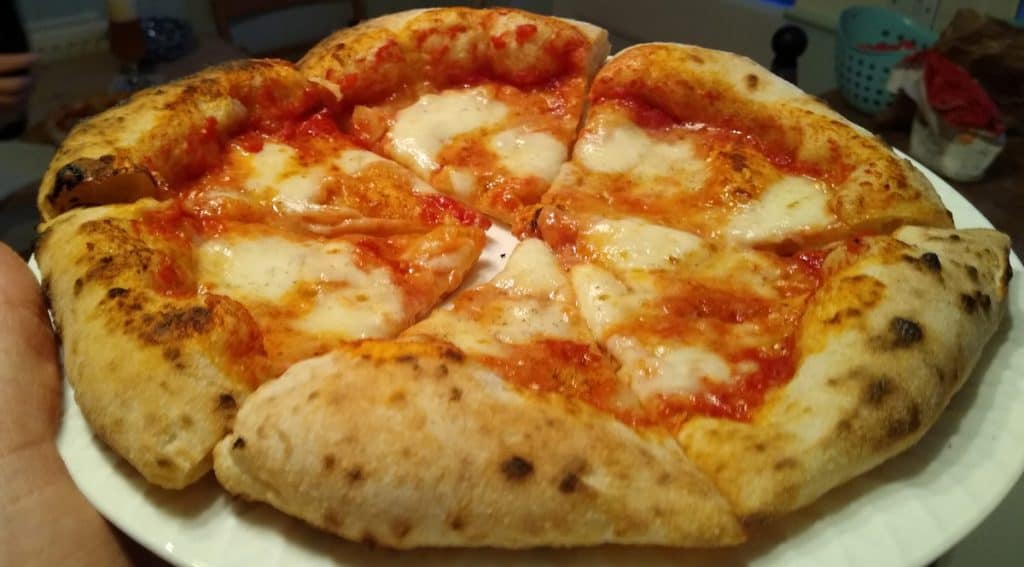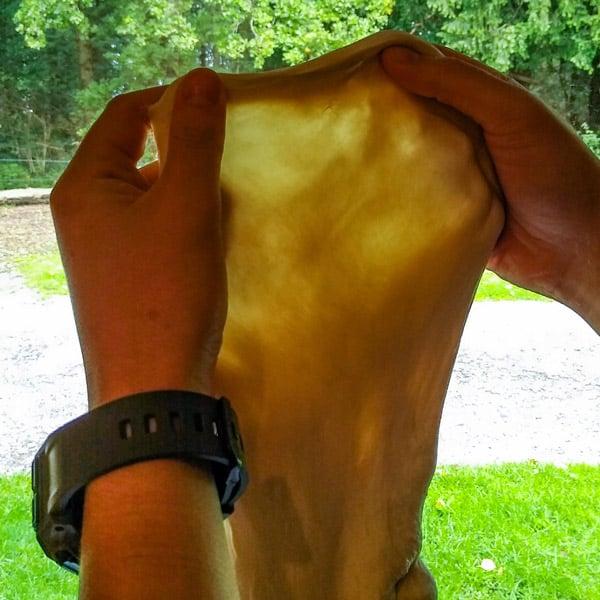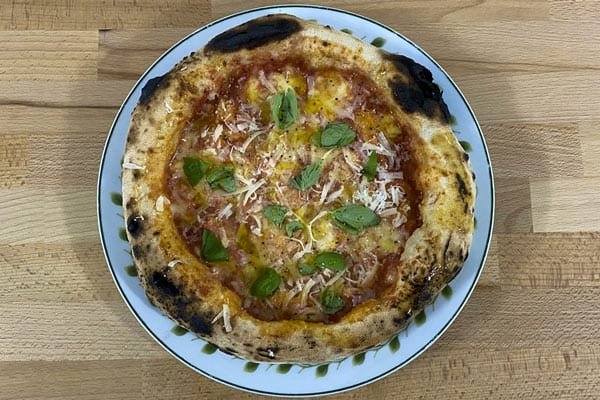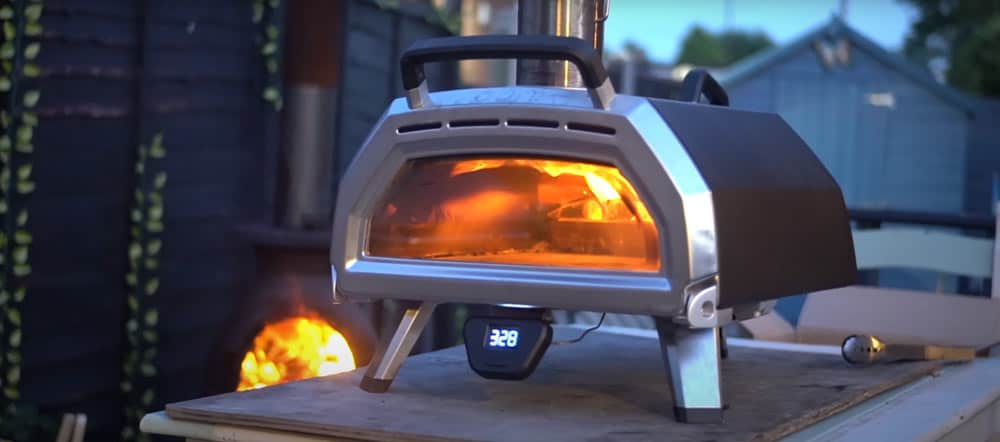This method is really easy and works great for small to medium size batches of dough, creating a beautifully soft and stretchy dough.
The video below shows me demonstrating the basic kneading technique that I use for my homemade Neapolitan style pizza dough.
Feel free to take a look at the video, hopefully it helps with your kneading. I definitely find it helps more to actually see how it’s done. I find it very difficult to explain kneading in writing!
In fact, you don’t have to knead pizza dough at all. If you are new to pizza making, I recommend trying out my no knead pizza recipe here.

However, kneading pizza dough strengthens the dough, allowing you to stretch the pizza out thinner. If you really want true Neapolitan pizza, you will have to knead the pizza a bit.
The good news is, not that long.
At first, you may have to spend about 10 minutes kneading, whilst you’re learning how to do it. But once you get the hand of the technique, you will probably only have to knead the dough for about 5 minutes.
You will learn this through experience but I have written an article on how to tell when your pizza dough is kneaded enough.

In the article, I also go into many other technical details associated with kneading. However, I wanted to keep it simple in this one because kneading really isn’t that difficult and I don’t want to put people off.
Once you have mastered the no knead method, give kneading a go on your next batch of pizza and see what difference it makes.
Try out this simple kneading technique and don’t be afraid to experiment, there is no correct way of kneading. Your pizza will benefit from an improved texture, and the additional strength will enable you to make a pizza with a really thin base.
I’ve found a really interesting article on kneading from Busby’s Bakery here. This article is really aimed at bread making and it goes over all the different kneading techniques.
Whilst most of the techniques mentioned aren’t ideal for pizza, it still shows that there are so many ways to knead. The method I use is referred to as “The intermediate knead method” in the article.

As well as producing great results, kneading pizza dough by hand is easy, fun, inexpensive, and highly rewarding. Knowing that you’ve made the pizza by hand, from scratch, makes it taste even better in the end!
Now let’s get mixing!

I’m Tom Rothwell and I’m super passionate about all kinds of homemade pizza! In the last few years I've been on a quest to find the perfect pizza. Now I'm sharing what I've found out with the world!

If you're interested in hiring me for your event in the UK, feel free to check out my website with the link below.
Pizza Catering

I often get asked what type of oven I use for my pizzas. Well, I use a pizza oven made by a company called Ooni.
The range of pizza ovens that Ooni offers is just brilliant. They cover all bases, and all price points. There's affordable and portable models such as the Fyra 12 Pizza Oven and then there's state-of-the-art models such as the Karu 16 Pizza Oven pictured below.
In all honesty, I would say that the oven makes a huge difference. If you're looking to make authentic Italian pizza, a pizza oven is a must.
By clicking the link below and purchasing from Ooni, you would be supporting this website. I've been using their ovens for a long time now and I wouldn't recommend them if I didn't believe in their products.
Time to make some amazing pizza!

I’m Tom Rothwell and I’m super passionate about all kinds of homemade pizza! In the last few years I've been on a quest to find the perfect pizza. Now I'm sharing what I've found out with the world!

If you're interested in hiring me for your event in the UK, feel free to check out my website with the link below.
Pizza Catering
Just started making pizza with an Ooni Fyra and most have been great. Some, however have huge bubbles inside the outer ring. What are the factors that influence bubble development? Thanks for a wonderful site and great info!!
Thank you for the positive comments Dan! Large bubbles are caused by overproofing. It is a fine line though, the occasional large bubble is fine but you may wish to pop the huge ones.
If you have a lot of large bubbles then this is a sure fire indication that your dough is overproved. You are very close to the perfect dough though, and only very slightly overproved. Next time try using a little less yeast or prove for a slightly shorter time. Good luck!
Thanks!!
Dan
Hi, I’m having a little trouble trying to follow the AVPN dough method. The thing is, when I knead my dough by hand, I knead for around 30 minutes trying to get as much air into the dough as possible. But after the first rest, about 1 hour when I’m cutting the dough to make the balls, there are no cavities or air bubbles as shown in videos I’ve seen. Why is that?
Hi Jonathan, are you proving the dough? The dough should be proved for around 18-20 hours before balling (and then another 4-6 hours proving as balls). Or alternatively, you could ball and then prove for around 18-20 hours but generally I recommend doing a bulk prove before balling and then doing another short prove.
Be sure to check out every part of my pizza school series here, which will explain everything in detail.
I hope this makes sense, good luck! Also, 30 minutes is a lot of kneading! 5-10 minutes should do the job.
Hi! Could I knead with a standmixer or it is better to do it by hand?
Thanks!
Hi JD, I recommend mixing by hand to start with so that you can develop a feel for the dough.
However, you can use a kitchenaid mixer on a slow setting, with a dough attachment. Thanks for the question!